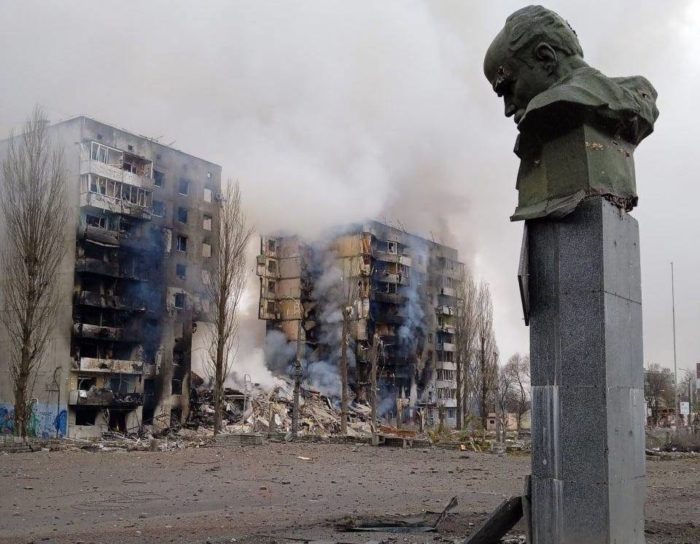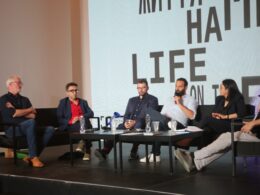From the first days of the invasion of Ukraine, Ukrainian scholars have been in contact with their Western colleagues in order to encourage them to limit their ties with the Russian Federation and raise awareness about Ukraine. Although most Western scholars unanimously support Ukraine in its resistance to Russian aggression, they do little to focus less on Russia and convey a better understanding of Ukraine.
In his article for Krytyka magazine, Ukrainian political scientist and research fellow Volodymyr Kulyk examines and analyzes the reasons for the indecision and insensitivity of Western intellectual circles with regard to current realities in Ukraine.
Assessing the war
In the beginning, Kulyk underlines that there are glaring differences in assessing and naming the war itself. Everyone agrees that the war is horrible, but there is a marked discrepancy between Western and Ukrainian academia on who is to bear responsibility for the war crimes and suffering.
In late February, PONARS Eurasia, a network uniting academics from North America and post-Soviet Eurasia, launched a discussion on how to name a section on the Russo-Ukrainian war on their website.
“I proposed to call it ‘Russia’s war against Ukraine’, but an American colleague argued that it was more appropriate to name it ‘Putin’s war against Ukraine’, because it was Putin himself who decided to start the war, regardless of what the Russian population and even the Russian elite really wanted.” says Volodymyr Kulyk.
On the contrary, Kulyk argues that it is basically millions of Russians who are waging this war, and their support and indifference make it possible. The PONARS members eventually titled the section “Russian invasion of Ukraine”, but discussions about the role and responsibility of ordinary Russians and Russian intellectuals continued.
Sociological surveys have clearly shown that most Russians support what their government cynically calls a “special operation in Ukraine”, and that this support is growing. However, such polls and surveys do not convince Western scholars who continue blaming only Putin and his entourage for the war and the indiscriminate mass killings of civilians.
71% of Russians feel “pride, joy, respect, hope” regarding war against Ukraine – poll
How do Russian scholars fit into the algorithm of war?
Following that, Kulyk goes on to analyze the West’s position towards the Russian academic and scientific community, noting the importance of their position with regard to the war in Ukraine.
“Should all of them be totally isolated, or should Western academia support only those who do not approve of Russia’s aggressive actions? Ukrainian scholars argue that their Russian colleagues are even more responsible than ordinary Russians for this war, as many have more or less openly supported the imperialist and anti-democratic policies and ideologies promulgated by Putin’s regime, while criticizing or ignoring national liberation programs established by Ukraine and other post-Soviet states. In fact, in their articles and lectures, Russian scholars tend to present Russia as a perfectly normal country, while Ukraine is viewed as a ‘failed state’ governed by nationalists and neo-Nazis.”
Indeed, only a small minority of Russian researchers and university professors have taken to the streets to protest or have strongly criticized the Kremlin’s actions in their publications. On the other hand, Western scholars believe that most Russian intellectuals have democratic views and disapprove of Moscow’s policies, but they do not protest out of fear of repression and a desire to continue working in their specific disciplines.
Consequently, Kulyk concludes that Western colleagues do not support Ukraine’s appeal to sever all ties with Russian scientific and educational institutions, and to cooperate only with scientists who unequivocally and publicly condemn Russian aggression. It is necessary to continue research and study programs with Russian scientists and institutions, they say, excluding those who have publicly voiced their support for “Putin’s special operation."
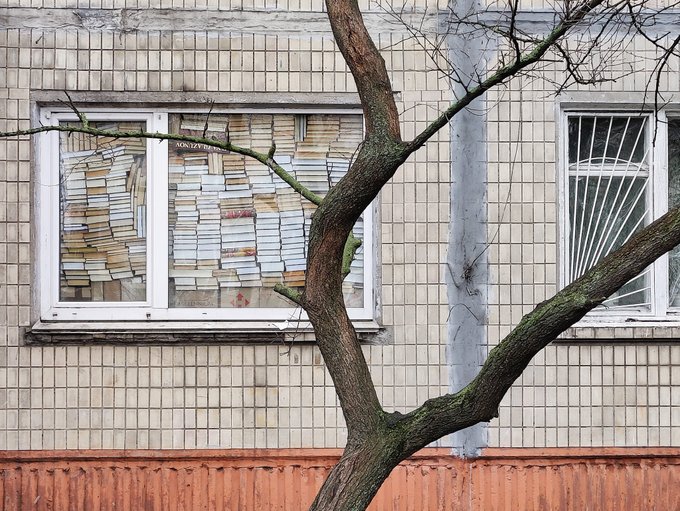
The role of the ASEEES in maintaining “good relations” with Russian academia
The Association of Slavic, Eastern European, and Eurasian Studies (ASEEES), a scholarly society dedicated to the advancement of knowledge about the former Soviet Union and Eastern and Central Europe, reflects the position taken by most intellectual communities. From the start of the war, the Association condemned Russia’s aggression against Ukraine, but within days, along with other professional associations, opposed “a total ban on the participation of certain Russians and Belarusians in scientific events and academic exchanges”.
Kulyk considers that dividing the Russian scientific community into “good and bad Russians” is unacceptable, as is the proposal to sever “official ties” only with those Russian institutions and individuals who “actively support Russian military actions”.
“I argued that cooperation is possible only with Russian scientists who had publicly and unequivocally condemned the aggression (and not just refrained from supporting it, in fact just sitting back and waiting it out until the end of the war).”
Although Ukrainian intellectual circles made several calls on the ASEEES administration to express a clear position on further cooperation with the Russian academic community, the Association Board and some other professional associations did very little, only condemning the Russian university presidents’ statement of support for “Putin’s special operation”, but did not call for an end to ties and cooperation with these same universities.

Furthermore, underlines Kulyk, the West seeks to shelter Russian scholars who have left or would like to leave the Russian Federation due to their disagreement with Moscow’s policies. Many European and North American universities and foundations support Russian and Belarusian academics in programs designed to help all scholars affected by the war, regardless of citizenship. However, because most Ukrainian men cannot or do not want to leave the country during the war, and Ukrainian women do not want to leave their families, more Russian than Ukrainian scholars tend to apply for such programs. Sadly, in the name of “equality”, Western philanthropists are not ready to grant preferential treatment to Ukrainian scholars.
“For Ukrainians, such ‘equality’ with Russians and Belarusians is not only unproductive but also morally unacceptable, as it actually puts two categories of people living in very different conditions on the same footing. It amazes Ukrainians to what extent Western colleagues do not realize that escaping an authoritarian regime that does not allow scientists to express their views freely (Putin’s Russia) is not the same as escaping bombs that this state drops on another country, Ukraine.”
Supporting the Ukrainian scholarly community and reinforcing academic ties
In fact, not only should Ukrainian scholars receive grants and scholarships from the West, but they should also obtain similar support from the Ukrainian government. Ultimately, Ukrainian academics expect not only charity, but also partnerships: joint research, publications and presentations, which, when it comes to social and humanitarian disciplines, should not only integrate Ukrainian specialists into the global scientific community, but also encourage greater interest in Ukraine.
Ukraine’s heroic struggle and terrible suffering have made people all over the world want to know more about Ukraine and its historical and present differences with Russia. At present, foreign media are highlighting and explaining Ukraine and the reasons for this war on their TV and radio programs. Kulyk points out that the scientific community moves more slowly, and to date, global academia has responded with few attempts to satisfy this growing interest in everything Ukrainian.
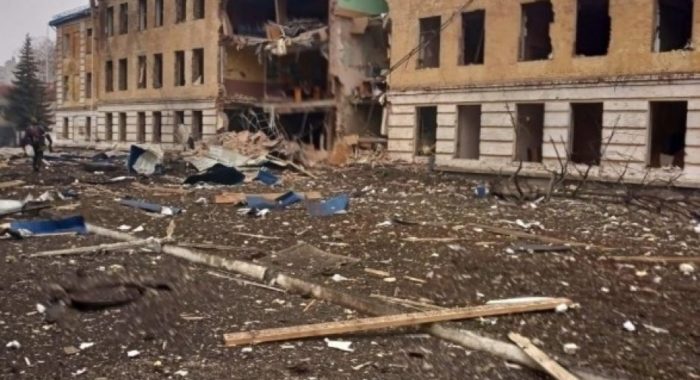
Hopefully, continues Kulyk, numerous courses on Ukraine and on post-communist space will be organized in the coming semesters. But, given the limited number of Western specialists in Ukrainian language, history, politics, economics, etc., Ukrainian scholars should be directly involved – both those who left Ukraine before/during the war and those that have remained in their homeland.
“For Ukrainian scholars deprived of home and/or work, this would be an opportunity to earn some money and establish direct ties with Western scientific institutions… Unfortunately, some Western universities simply do not allow contracts with Ukrainian citizens who are not established in the West due to suspicion of ‘widespread corruption’.
But, many of my Western colleagues understand the importance of this task and will work to achieve it - for example, by persuading their university administrations to classify payments for distance learning not as salaries but as fees. Let’s hope that works…”
Changing the focus from Russian to Ukrainian studies
However, Western educational institutions should also consider implementing long-term changes in their study programs, as most have sorely neglected Ukrainian studies and given Russia unconditional priority in post-Soviet studies. Kulyk argues that Western institutions should open departments and research centers focusing on Ukrainian studies, publish more professional journals and books on Ukraine, and provide scholarships for Ukrainian students, as well as awards and prizes for the best scholarly works.
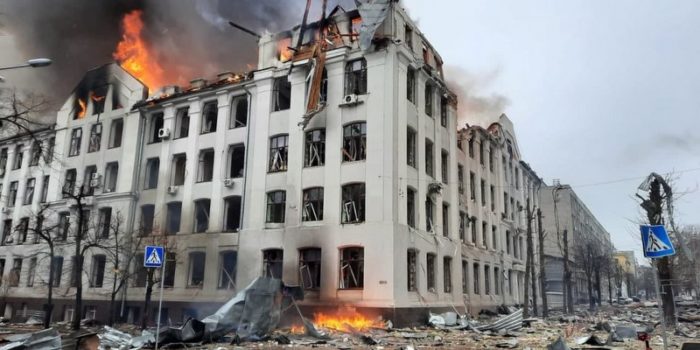
“Western colleagues generally agree, but note that major changes require a lot of money and organizational effort, and therefore it will take a long time. Moreover, we (Ukrainian scholars) should not exaggerate or overdo this sudden interest in Ukraine, they say. Therefore, they tell us that it’s necessary to be realistic and limit our appetites!”
Kylyk states that even more disagreements arise when Ukrainian scholars underline that these Ukrainian studies should be an important part of programs on post-Soviet space, Central and Eastern Europe and Europe in general. Western university administrations should make changes to university curricula and research paradigms, which will put an end to Russocentric aberrations and create new Ukrainian and Eastern European studies, which will explore regional diversity and interrelations.
“[These new programs] should not consider Kyivan Rus as a part of Russian history, should not start Ukrainian history from the Cossack era and should not divide Ukraine into two different regions - a nationalist West and a pro-Russian East. They should view Russian culture - Pushkin, Lermontov, Tolstoy and other classics - not only as a reflection of humanism, but also as a tool of imperialism. Thus, they will enable students to understand that, throughout the ages, the Russians’ aggressive attitude towards Ukraine and the West, which led to the horrors in Mariupol and Bucha, were formed under the destructive influence of such outstanding works of national culture.
After all, why should Pushkin be studied more than Shevchenko, and Russian more than Ukrainian? Of course, Western experts in Slavic studies, especially the older generation, won’t agree to this, because such changes would undermine their professional qualifications and identity, pointing to them as people who have been studying and lecturing about the wrong thing all their lives.”
But, says Kulyk, perhaps what Western scholars dislike most is when Ukrainians urge them to acknowledge their mistakes for intentionally or unintentionally contributing to wrong policies and their ensuing consequences, namely the following categories:
- political scientists and military experts, who claimed that Putin would not attack Ukraine, and if he did, that it would last no more than a few days. Such statements prompted Western politicians to underestimate the threat of war and delay the provision of weapons to Ukraine, despite contrary reports by their own intelligence units.
- Russian scholars, who underestimated Moscow’s authoritarianism and classified Russia as a normal, albeit not entirely democratic, country with which the West can and should cooperate politically, economically and culturally.
- Ukrainian academics, who were more obsessed with so-called radical nationalism and exaggerated the internal factors of the Donbas war, which most of them refused to recognize as Russian aggression, and some even calling it a civil war. It is true that most Ukrainian scholars changed their position after 24 February, 2022.
As far as Western expertise goes, only one specialist - Swedish political scientist Bo Peterson - confessed to the West’s ineptitude and blindness in regard to possible Russian aggression.
“…Had we, the members of the expert community out there, only taken him [Putin] more seriously during all these years, then maybe the present situation would not have been as disastrous as it is now. Again, if only we had cried ‘Wolf!’ more often.”
Kulyk wonders whether the Western intellectual community will ever regret beginning the history of Russia with Kyivan Rus, instead of deconstructing this interpretation as an ideological project to justify Russia’s claims to Ukraine and Belarus, attributing the Soviet victory over Nazi Germany primarily to Russia, thus implicitly supporting Russia’s claims to monopolizing this military achievement in WW2, or accepting Pushkin’s self-representation as a poet of freedom and not as a herald of imperial enslavement. Kulyk doubts that Western scholarly associations will acknowledge their responsibility for preserving colonial hierarchies in post-Soviet and Eastern European studies, even if they gradually abandon those hierarchies in future research programs.
Thus, concludes, Kulyk, perhaps Ukrainian scholars should remain in these associations, even though the latter are still so reluctant to admit mistakes and expel their Russian colleagues. However, this question - should Ukrainian scholars leave or stay in academic associations - is left hanging in the air.
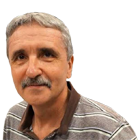 Volodymyr Kulyk, Doctor of Political Science, Professor, Senior Research Fellow at the Kuras National Institute for Political and Ethno-National Studies, National Academy of Sciences of Ukraine.
Volodymyr Kulyk, Doctor of Political Science, Professor, Senior Research Fellow at the Kuras National Institute for Political and Ethno-National Studies, National Academy of Sciences of Ukraine.
Read more
- 71% of Russians feel “pride, joy, respect, hope” regarding war against Ukraine – poll
- Russian occupiers launch war on Ukrainian history, burning books and destroying archives
- How Russia justifies the murder of Ukrainians: Russia’s 2022 “genocide handbook” deconstructed
- “They were shot in the back of the head.” Eyewitness account of Russian murder of Bucha residents
- Ukrainian women POWs stand proud with shaven heads after prisoner swap with Russia
- All surveys since start of Ukrainian war show Putin’s standing among Russians up
- Putin’s Big Lie: the “Donbas genocide” and “impending Ukrainian attack”
- Putin’s ‘Z’ symbol echoes Hitler’s swastika in pointing to a final ‘solution’ to ‘Ukrainian question’
- War diary: “Terrified of what He saw, God has left Mariupol, my neighbor said
- Russian ideology: imperialism, militarism, and racism

